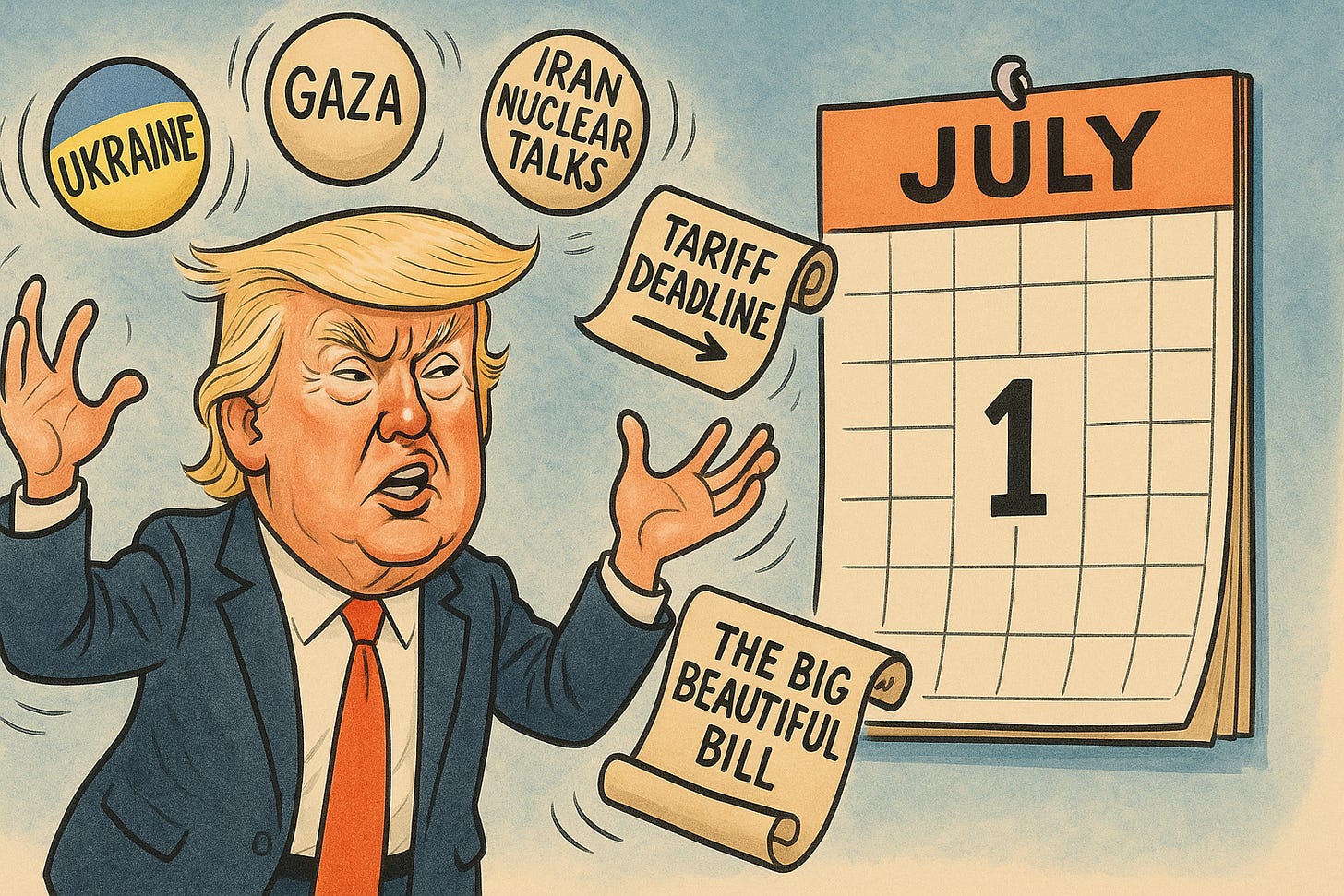After a June dominated by the Israel–Iran confrontation, July is shaping up to be just as pivotal and perhaps even more so. Here’s the helpful lowdown from the newsroom at AQL.
The explosive events of last month included quite a collection of firsts. Israel had never attacked a non-Arab country. America had never joined in an Israeli attack (and indeed r…
Keep reading with a 7-day free trial
Subscribe to Ask Questions Later to keep reading this post and get 7 days of free access to the full post archives.


